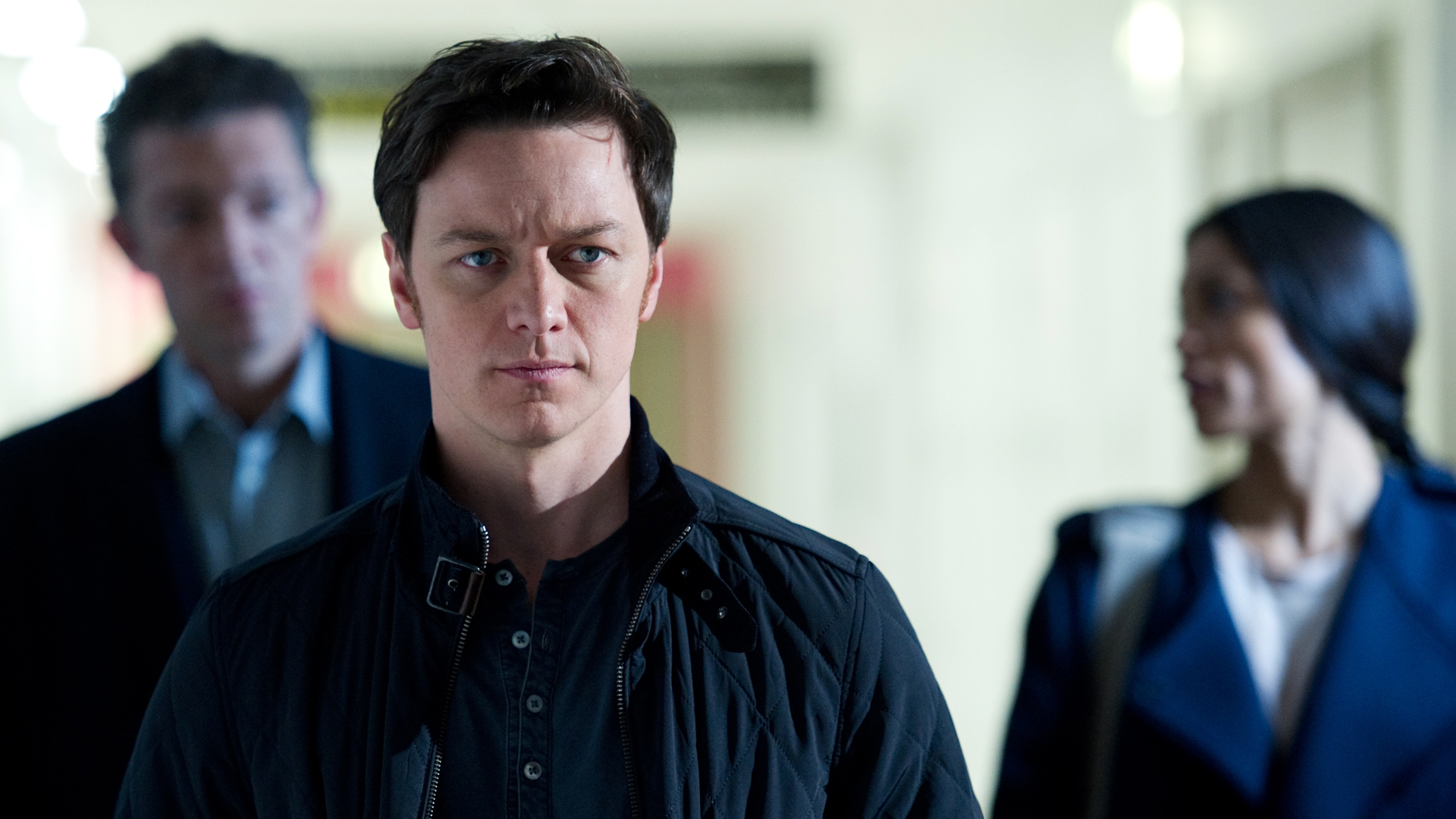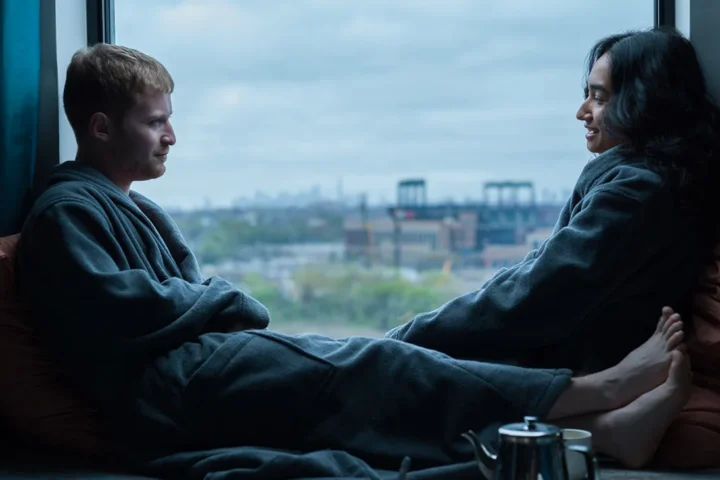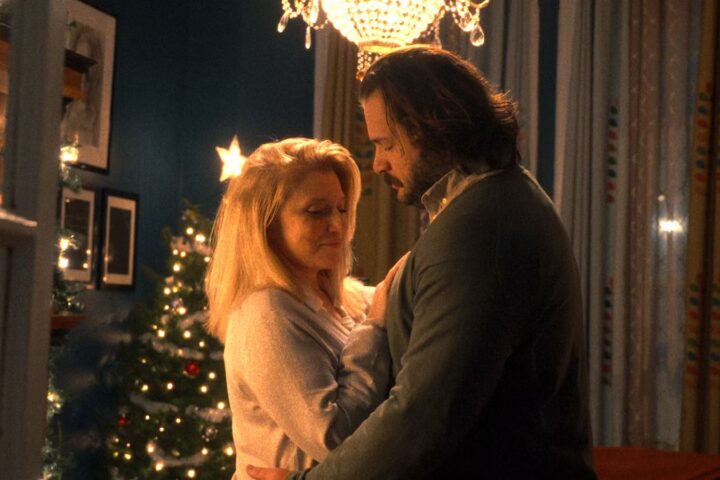Reality is overrated in Trance, Danny Boyle’s twisty bit of tomfoolery about an art auctioneer who gets caught up in a heist (we think). It’s a minor picture from a major director, a dark love triangle where nothing is what it seems, a serpentine crime saga played fast and loose. It’s fun for awhile, until it reveals its real agenda—an exercise in cleverness that largely leaves us cold. A step ahead of us all the way, Trance is a guessing game that wears us down, and one where “anything can happen” at any moment. And a lot happens in this picture’s 101 minutes.
“No piece of art is worth a human life” is the mantra of London art auctioneer Simon (James McAvoy), fastidiously trained to protect treasured paintings at nearly any cost, including a $30 million prized Goya that disappears after an attempted theft by thief Franck (Vincent Cassell). When the caper goes awry and the objet d’art mysteriously disappears mid-heist, Simon claims temporary amnesia. Unconvinced, Franck coerces Simon to undergo hypnotherapy courtesy of Elizabeth (Rosario Dawson), a comely shrink who surmises something afoot and wants a piece of the action. The bulk of the film digs deep into Simon’s trances (without always telling us so) while the loyalties between the three shift. Does Simon really know where the painting his hidden? Is Elizabeth a sympathetic doctor or a femme fatale? Can hardboiled Franck be trusted? Does Boyle truly care about any of this?
Fresh from directing the 2012 Olympics opening ceremony and reportedly looking to do something “darker,” Boyle chose this trust no one tale of dishonor amongst thieves. But in a canon including the highs of Oscar-winner Slumdog Millionaire, 127 Hours, 28 Days Later, Trainspotting and Millions, Trance falls somewhere near the director’s middling pictures Shallow Grave, Sunshine and The Beach, an expected head-trip of pulsating music and color and flash that’s become the director’s signature across impressive mountings of disparate subject matters, courtesy of composer Rick Smith and cinematographer Anthony Dod Mantle, who hopefully received overtime pay. But in Trance, this “Boyle stamp” is the whole show, a glaring style-over-substance head-trip in a movie that doesn’t play fair.
Despite an undeniably intriguing premise, the problem with Trance is that it isn’t generally interested in its trio and is too clever by half, too “written” to be engaging. Unlike Stephen Frears’ brilliant 1991 noir The Grifters, for example, Trance makes certain that we are never quite sure who is conning whom. The movie also doesn’t seem to know how it feels about any of its characters and consequently, as our allegiance shifts back and forth and back, our interest dissipates. Most of the time our reaction is one of, “Not sure what’s happening, but I’ll just go with it.”
There’s one good idea in Trance, and it’s a really good one—that the person you love madly has the power to make you believe in or forget anything they so desire—but that comes too late in the picture, after Boyle has worn us down with his Throbbing and Hyperkinetic and Look Here visual and aural overkill. He does manage something close to real emotion in an extended late sequence which is all about words and a close-up, eloquently scripted by screenwriters Joe Ahearne and John Hodge after they’ve given us an hour and a half of manipulations.
Such machinations don’t detract from the actors, Cassell the personification of virility, trading on his patented sexy menace, McAvoy upending his own nice-guy sensitivity and Dawson giving the Best Performance by an Actress who has No Business Playing a Doctor. The star, always interesting to watch, is in full abandon, even if she never quite captures the gravitas of a licensed therapist. When she appears fully nude, a vision of Goya come to life before a man whose ideal women have previously existed only in masterworks, Boyle’s ingenious framing—a crafty reflection and tilt reveal by the camera—serves her beautifully.
What is reality? What is in our minds? Is real life and a dream the same thing? How can we tell the difference? Trance would have done well to meditate on such notions. As it is, it’s merely content to pull the rug from beneath us.
2 stars.



